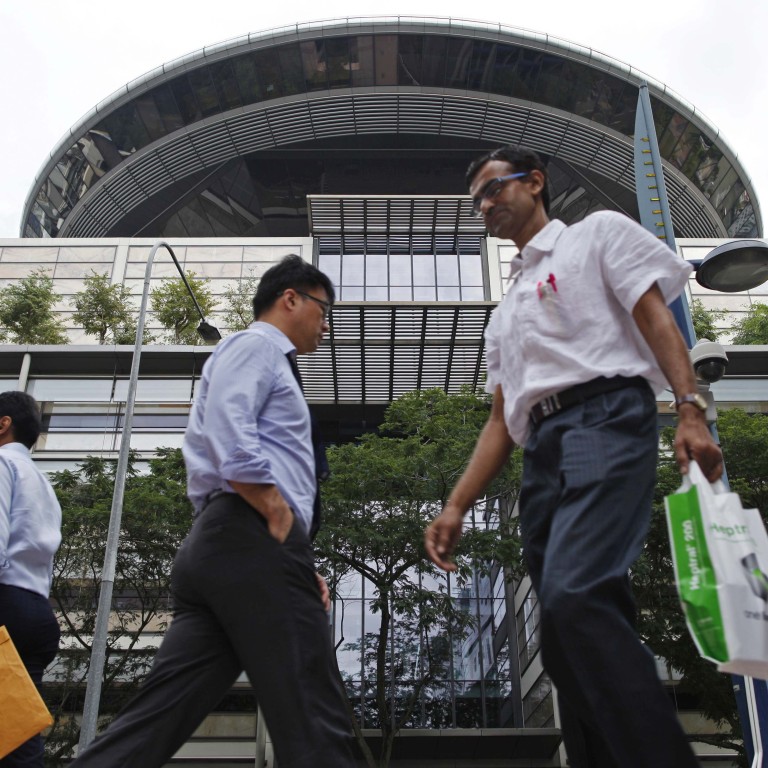
Singapore's planned international commercial court to take legal business away from London and Hong Kong
Singapore’s ambitious plans for an international commercial court are set to expand upon the city state’s success in arbitration, helping it siphon away more legal business from rivals like London and Hong Kong.
The court, announced in December and which could be launched by the end of the year, would also come with a mediation centre as Singapore seeks to remake itself as Asia’s one-stop legal city, offering all three types of dispute resolution.
That would help set Singapore apart from Hong Kong, which does not have a commercial court, as well as encroach on London’s dominance in litigation for big cross-border corporate spats.
“Among the leading cities for dispute resolution, some are resting on their laurels and others are trying increase their attractiveness to parties – Singapore leads the pack in the latter category,” said Michael McIlwrath, senior litigation counsel for GE Oil & Gas, who is based in Florence, Italy.
Benefiting from the city state’s position as a regional business hub, its strong judicial system and a rise in disputes as Asia-related trade grows rapidly, Singapore’s arbitration centre has tripled the annual number of new cases it handles since its launch in 1991.
Recent high-profile disputes include French food giant Danone taking on New Zealand’s Fonterra Co-operative over a false alarm about contaminated milk powder, Phillip Morris challenging Australia’s government on plain tobacco packaging rules, and Churchill Mining’s US$2 billion case against Indonesia’s government over coal rights.
New filings in 2012, the latest year for which there is data, jumped by a quarter to 235 – not too far off those handled by London’s and Hong Kong’s arbitration centres.
Those centres, by contrast, have only started to rebound after steep declines due to the global financial crisis.
Part of Singapore’s push to develop its professional services workforce, the new court underscores a rosy outlook for legal services in the region. International firms like Simmons & Simmons and Morrison & Foerster opened new offices in the city state last year.
Legal service revenues in the Asia-Pacific are forecast to grow to US$121 billion by 2016, up 40 per cent over 2011 levels, according to research firm MarketLine.
Litigation, a thorough judicial process that offers further recourse through appeals, and arbitration, which tends to be quicker and more private, each account for 47 per cent of overall corporate dispute resolution choices, according to a report by consultancy PwC.
While a commercial court could thus widen Singapore’s legal reach greatly, one obstacle it will have to first overcome is ensuring its rulings can be enforced outside the city state.
In arbitration, the New York Convention enforces awards in foreign jurisdictions, but the new court will have no such mechanism. To that end, Singapore plans to form bilateral or multilateral government agreements and court-to-court arrangements to ensure rulings are respected.
Seeking a strong start, Singapore will be looking to lure some well-regarded foreign names to sit on the new court’s panel of judges, lawyers involved in the process say.
Potential litigants may also be enticed by a plan unique to Singapore’s International Commercial Court to give disputes with no substantial connection to the city state the option of being heard confidentially, said Nish Shetty, a partner at Clifford Chance.
One encouraging sign for Singapore is robust growth in Dubai, another city seeking to gather international legal business. The caseload at its courts jumped 40 per cent to 42 in 2012 from the previous year.
And if London is anything to go by, the new court could prove very profitable for lawyers based in Singapore.
A new swathe of London’s top lawyers have become millionaires as Russian oligarchs, US nationals and Kazakhs flock to English courts, attracted by the reputation of English law and country’s judiciary.
More than 60 per cent of litigants in English commercial courts now come from overseas, according to a study by London-based communication agency Portland.
Singapore’s growth in arbitration augurs well for its commercial court, corporate lawyers say.
“Dispute resolution has moved, and is moving east,” said Peter Goldsmith, co-managing partner at Debevoise & Plimpton in London. Goldsmith, the former attorney general of England, Wales and Northern Ireland, is a member of the Singapore government’s committee on the new international commercial court.
“I can see disputes which are happening in Singapore, which I think yes, once upon a time would have come to London, because it was a sort of default place to be.”
Singapore is also the most preferred Asian venue for arbitration handled under International Chamber of Commerce rules and came fifth in global rankings behind Switzerland, France, Britain and the United States in 2012.
Goldsmith points to Indian companies that have traditionally taken disputes to London because of slow and inefficient courts back home. They filed 49 cases with the Singapore International Arbitration Centre in 2012, double the number in 2009 and just behind Chinese firms, which had 52 cases. Indonesian companies ranked third with 28.
Singapore may also benefit from the perception that it is more neutral than Hong Kong.
“Increasingly, we do see disputes involving China parties and foreign parties coming in this direction because of the sense Hong Kong is too connected to China,” said Patrick Ang, deputy managing partner of Singapore law firm Rajah and Tann.
